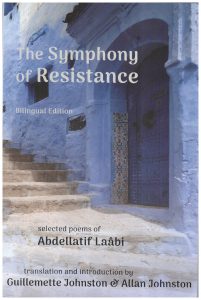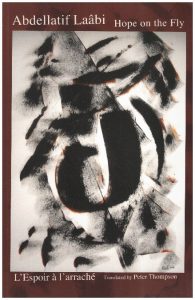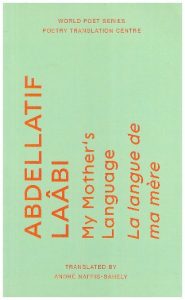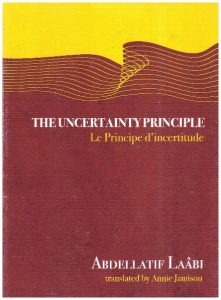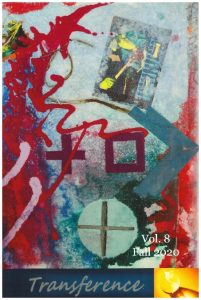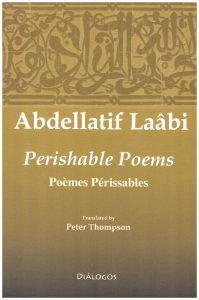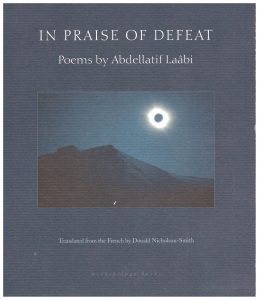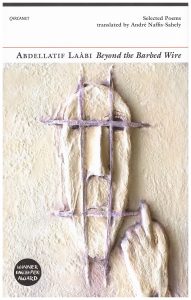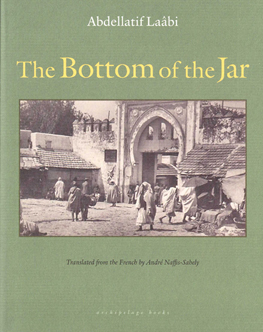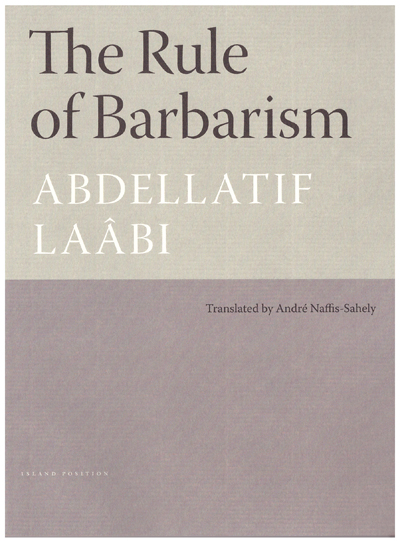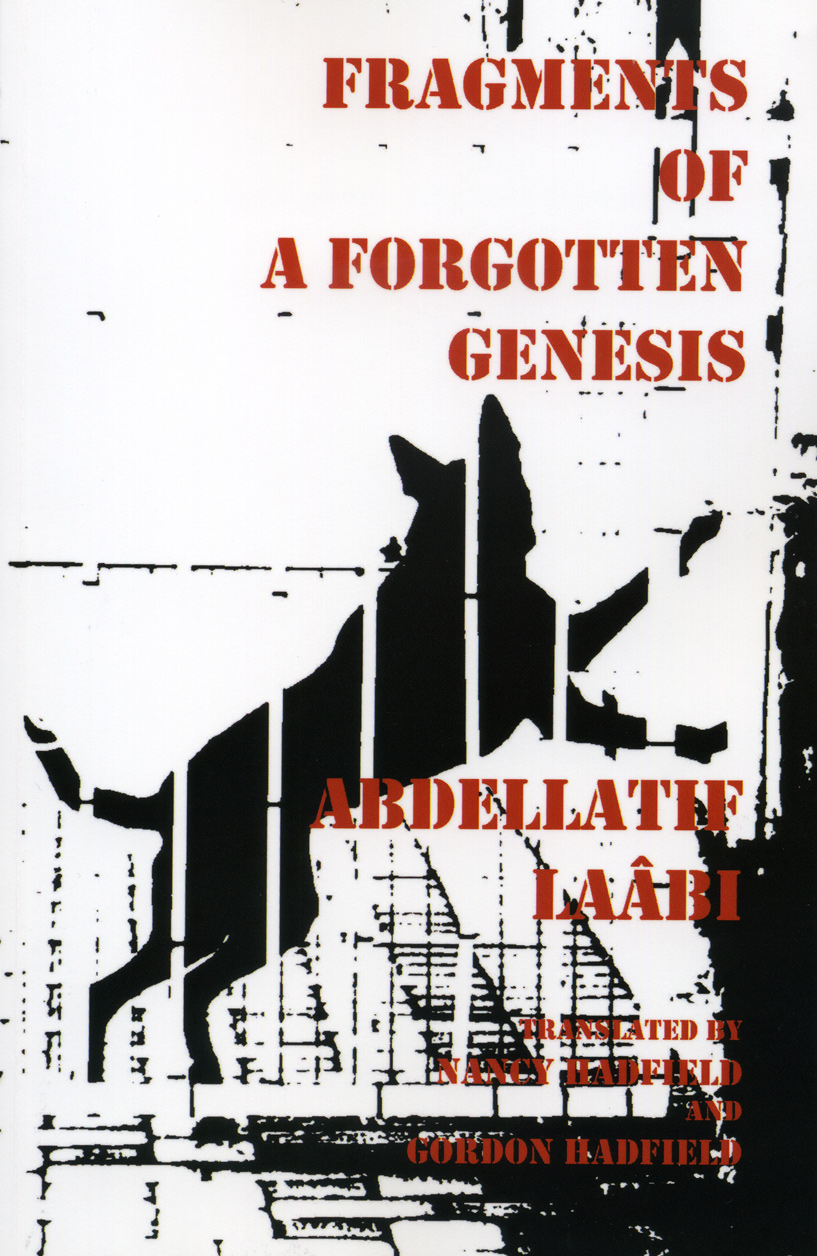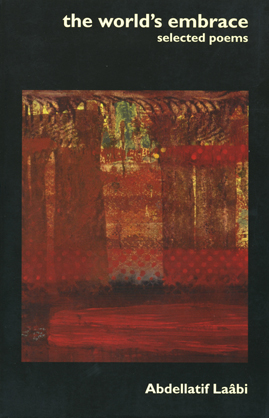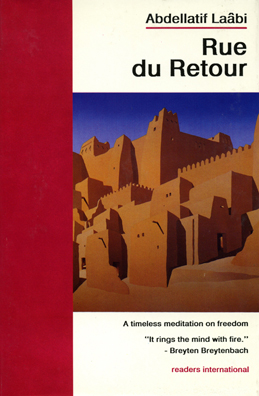Kristin Prevallet : I’m currently doing research for an anthology that will work to contextualize the cultural and aesthetic diversity of contemporary French-language poetry. As a young poet, I don’t think I was alone in thinking that the most interesting poetry coming out of France was all coming out of a particular European avant-garde, Mallarmian tradition. I grew into an appreciation of French poetry through this work, so certainly it means a lot to me. I admire your work because it seems as if you have traversed many different kinds of poetic practices, movements, and political struggles. Yet, your work and that of other so-called “Francophone” poets hasn’t been very well represented in U.S. literary magazines-although that seems to be changing now.
Abdellatif Laâbi: I too am disturbed by this. But ultimately this is an Americano-American problem. That said, Francophone literature departments in American universities are very active, much more so than they are in France. Translation basically depends on the publisher and their interest in a Francophone poetry that is distinct from what is being written by the “born and bred” French poets. Thankfully though, this does not reflect the genuine interest that American Universities have taken in Maghrebian, African, and Caribbean literature. I don’t really like the term “Francophone”. Aside from the fact that it’s politically charged, the term is reductive. It’s a means of confining very diverse literary experiences, each of which are distinct, into a singular issue with language.
The term Francophone is therefore a political term. What about other terms that get used to further reduce and define Francophone poets as either being “inspired” or “politically engaged”?
That’s not really the question, which has to do with much more than this issue of the term “Francophone”. The question really has to do with all the writers who do not write in their mother-, or, as I prefer to call it, birth-language. Take Indo-Pakistani writers-for example, Salman Rushdie, Ondaatje, etc. In England, the writers who are currently moving literature forward are not necessarily native to England-they are people who come from outside. In France we have the example of Kundera, who decided to write in French. This is a huge phenomenon in the world today. Apart from literature that we’d call “national”, there is a new kind of literature which is currently emerging in what I would call the peripheries of the world–India, Africa, or elsewhere. What is interesting here is that these literatures are straddling between two cultures, two imaginations, and two different languages. But these writers are not only “between” — they have mastered both sides. I am perfectly bi-lingual: my birth-language is Arabic, my writing language is French. Perhaps what makes what I write unique is that the two cultures are intertwined. Even when I am writing in French, my Arabic language is there. There is a musicality in Arabic, and these words enter into my French texts. I think that people are not seeing the originality of this phenomenon which is currently world wide.
There are writers who seem to think that this literature, because its form is not innovative, is ultimately still traditional because it is not moving the language in formally interesting ways.
This criticism is shocking to me. It simply proves an ignorance of the kind of writing I am talking about; it also proves a sort of French, hexagonal, pretension which considers any literature that comes from the edges of the earth to be minor. This attitude is simply a left-over from the colonial mind-frame. But I thought that this mentality was finally on the verge of being considered passé.
So language cannot be claimed and there is no “pure” language…
I am not going to fight over who gets to say, “I am the one who gets to represent the French language, or that person is the one”… — that’s not my problem. What is my problem? That I did not choose to write in French. Why? Because I was born in a country that was colonised by the French. In school we did not learn Arabic because we were taught in French. So when I began to write, the only language that I really knew was French. What happened after that is a very long story — of love, of hate, of rejection — with the French language. Now I am at peace with it. The colonial experience was what it was; it was tragic, but some things were brought in as well. I do not hold any grudges and am no longer enslaved, but I am a product of this history. I have only lived in France for 15 years; all that I have written in the past and continue to write today is in touch with the reality of Morocco and the Third World — and I write in French. I am very comfortable with French, but I would not say that this language is superior over this one or that one. It’s simply that I did not have the opportunity to grow up in an independent, free country where you were able to learn the language of your country in school.
Do you think that the more theoretical tendency of so-called avant-garde poetry has to do with a lack of political urgency? One of the African poets I interviewed was saying what a luxury it would be to be able to write from a purely theoretical position-not to be weighed down by social and political problems.
Writing is still a risk in many countries. This was the case in Morocco when I was still living there — I was put in prison. In other countries, poets are assassinated. Of course, a Western poet is not exposed to the same dangers, to the same threats, but there are equally serious but different atrocities which occur in countries which we call democracies. There is the numbing of consciousness, an indifference which is gradually settling in — there are unacceptable things that happen every day, and pass as normal. How can I not be upset? I am implicated in this, because I am aware that the West is a part of me. It’s my humanity as well. To me there is a single human condition, within which there are different situations. And I don’t understand how one could think that the intellectual should be absent from all that — do your work and leave the world behind the door. If this satisfies certain intellectuals, that’s their prerogative. But for me, poetry is too closely connected to life and what it stands for. What is life if not dignity, liberty, the ability to express oneself freely?
How did you come into your own as a writer?
I was born into an illiterate environment. My parents were never able to express themselves. One of the reasons I started to write was for the men and women who are not able to express themselves, but who are not stupid nonetheless…to allow them to speak, to have something to say. I am in the process of writing a novel where the central character is my mother. She is already a character straight out of a novel. She is someone who has a sensitivity, a vision; someone who was always extraordinarily frustrated about her condition. I owe her a lot, that’s for certain.
And this frustration was understood by the men of the family, her husband, her sons…or did you only come to realise this later?
Much later. When you think back, you realise many things. Childhood is the patrimony of the poet. I always say that the poet writes with his childhood. He should not need to grow up. The eye of the child on the world is the first moment of seeing. And for me the poem is always this first look. This is what makes the poem magical. Because something is seen and said for the first time.
What do you think about the concept and role of the writer as a “public intellectual”?
I have a rather particular personal history. I am someone who fought, politically and intellectually, against dictatorship in Morocco. I do not separate the work of the intellectual–the production of ideas and symbolic value–from the work of being a citizen. However, when I write it is not because someone told me to. I do not belong to a party, and am not a part of a union. I obey no ideology. I am free. But to the extent that I am an intellectual, I cannot be silent when there is oppression, injustice, human rights abuses. I have to fight. I have something to say. I participate in politics. I defend the function of the intellectual as citizen. We used to say, “engaged” but this is a word which has been dragged out for too long.
Like the term “francophone” perhaps? Every time I see a reference to this in books, it seems pejorative.
It has become pejorative, yes. There were ambiguities 30 or 40 years ago when they began talking about “littérature engagée”. Two roles were confused. An intellectual was supposed to be engaged with a revolutionary party, participating in an ideology that was supposed to change the world. There often were repercussions of this political engagement, of this ideology that would effect the literary work. There was Gramsci, the Italian philosopher, who spoke about “organic intellectuals” where the intellectual is the voice of the proletariat. There is in fact an inherent problem with this. Today I think this notion is no longer applicable. I prefer the term, “intellectual-citizen”. Someone who writes, who paints, who makes music, but who at the same time is involved, paying attention to current struggles.
If a writer is an intellectual-citizen, does that mean that the writer has a responsibility to speak about political situations in his or her poems? Or is the poem itself, the act of writing, a socially engaged act?
Is a love poem a poem that is engaged? I have written many love poems. I am in the process of writing erotic poems. They contain no politics. I am in love with a woman, there you have it, that’s it. But to answer your question, it is not a matter of responsibility. There are certain events that command my attention. A few years ago, for example, a young 21 year-old Moroccan was walking along the Seine. It was May Day, and there was a demonstration organized by the National Front (the extreme right party here). A few skinheads detached themselves from the demonstration. They beat this young man, and then threw him into the Seine. He died, by drowning. This particular racist crime really effected me, and I wrote a poem about it. Do I not have the right? Is poetry so sacred that it should never reflect on human tragedy, as a means of protest and denunciation? There are many racist murders, but gradually they are forgotten. I named the victim; I did not want him to be forgotten. The poet is also someone who fights for memory. If there is no memory, there is no literature (there is nothing). That said, the poem as I wrote it is a poem in and of itself. It’s not as if I’m simply saying, “Down with the National Front!”
Couldn’t this be a new definition of a “poème engagé” ?
I couldn’t care less about the label. No. It is a poem of life that is against barbarity. Period. I’m not an alarmist, but I think that we are living in a phase of humanity that is in the process of self-destructing. We know very well what is happening to the equilibrium of the climate. The African continent is on the verge of dying, wasting away. There are countries in which two-thirds of the adults have contracted AIDS, and at the same time the multinational pharmaceutical companies refuse to sell drugs at prices which the poor can afford. Those who are aware of what’s happening in the world cannot just continue to live their little lives-they must speak out. Of course, it all depends on the particular ways in which one writes. What I’m saying applies to me, but I would not preach this to other people. I fight for my liberty as a poet to write what I want to write, what inspires me. To say, “this here is poetry, and that there is not” is intellectual fascism. Creation is the domain of freedom, its most precise and concrete definition.
Would you mind talking about the publication of Souffles?
We were 23 years old when we started it. There was Mohammed Khair-Eddine, a major poet and novelist who died a few years ago in total poverty. There was Mostafa Nissaboury who lives in Casablanca, who continues to write and publish. And then there are all those who came later. Many writers, from Morocco, Algeria…It was not just Arabs who participated in the project, there were Africans, several French writers, a German writer. The magazine lasted for six years, and was banned in 1972. The fact remains that this was a magazine that allowed an avant-garde movement to be born, to express itself, and therefore to help the literature that was coming out of Arab countries move forward.
And how do you define the avant-garde?
For me, the avant-garde refers particularly to a rebellion against established standards. It is one moment of rupture in an evolution. Generally speaking, I believe that ruptures are what allows history to either advance or retreat. In literature, this is sometimes brought on by either an individual (Arthur Rimbaud, for example, created a poetic revolution), or a generation (a group of writers who create this rupture and thereby allow the design, the vision of literature to pass from a stage to another.) Generally, this occurs when the movement is extreme. Things have to be created on a clean slate, as if nothing existed before it. It’s like flying ahead, going somewhere else. Of course, you eventually have to return and see that there were many significant things which came before you. But an avant-garde movement can only take shape through a certain symbolic violence. It’s necessary, because otherwise one is always the pupil of somebody else. An avant-garde movement says, I have no god and no Master; I am the Master of myself.
Did the violent symbolic system you are referring to come from a European avant-garde tradition, from your studies of French literature?
Perhaps. But we were also rebelling against French literature: growing up during the colonial time, even if you were a good writer, you were at best considered to be a good pupil. So for us it was a question of affirming that we were not pupils. We wanted to be finished with colonial history. We wanted not only the economy, the government to be decolonized, but people’s minds as well.
What were you reading during this time… Frantz Fanon…
Yes, among others. Aimé Césaire was very important to me. As was the Moroccan writer Driss Chraïbi. But I was also reading other writers who you might consider different. Dostoïevski, who I read when I was 15, nourished me. And many others, of course. Certainly, reading played a big role, but what was most important was being aware of exactly what was happening in the Maghreb during that time. As Fanon said, we had to break free of the West. We needed to be finished with the colonial period. We were ready to become subjects of history and no longer objects. It works like this: in history, and in the history of literature, there are moments when individuals express what is happening in society; to some extent, they are the instruments that allow for what needs to be articulated.
Do you think there is an avant-garde today?
Like the concept of engagement, I am wary about the concept of the avant-garde. There is what I call a process of “merchandisation” of culture. In other words, people know which books “sell” today, and inevitably this has an impact on literary production, on the creation of literary works. Books of poetry remain marginal. There are rarely more than one thousand copies printed of a book of poetry; it is often necessary to attempt to find them in specialised bookshops. It seems to me that poetry is the one art form which resists this system of commodifying culture. It is an intellectual resistance as well. It is one of the rare fields where a person can truly practice the freedom of being man, woman, human being, creator. This is why I fight for poetry.
I agree that poetry as an art form fundamentally resists being “merchandised”, but I think that the poet is also doing the work of research into the language of the culture-in other words, that poetry does not exist only by itself. It exists, as Glissant said, in relation to the world. It seems to me that for the poem to articulate justice and humanity, it is important for the poem to make a connection with all of the various elements that contributed to its production-including the language of commodity culture, current events…
Yes of course, the poet is a craftsman researching language — but this is not an erudite search. The writer is not a scientist or a linguist. It is a problem of the economy of the language. A text has no consistency unless there is not one word that is out of place. Poetry is the ability to find this particular economy. That said, I am wary of poetry theorists who want to apply their theories to the writing. Applying ideas, wanting everything to be controlled by the intellect, inevitably makes the emotion, the lived experience, disappear. Ultimately, I think that poetry is primarily instinctual.
However, I agree with you that poetry is connected to the things of the world. The poet writes with life, writes with his life. I contend that each one of us is a unique individual. You can share many things with friends, with the person you love, with other writers–but what is inside of you is unique. If we both look out onto the street right now, we would not see the same thing. You would see one detail, and I would see another. What is wonderful is that via this particular art form, we are able to articulate what is inside of us that is unique. If I write, it is because I am trying to understand who I am; this enigma which is myself.
Kristin Prevallet, Paris, May 2001
Double Change, edited and transcribed by Omar Berrada
